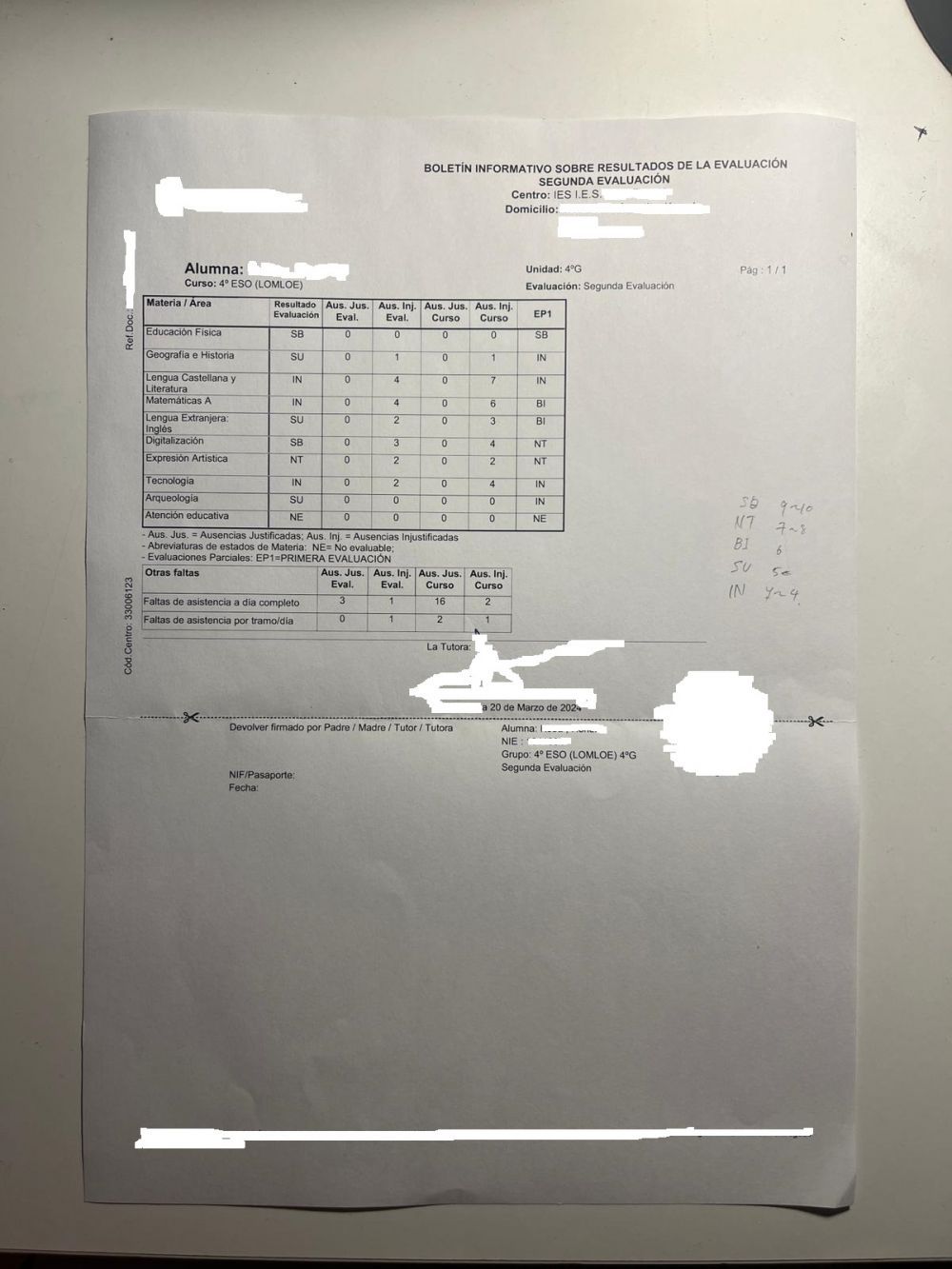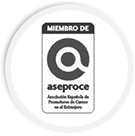High School Abroad in Spain: learn more about Spanish grades and grade reports
How is the Spanish High School system organized?
As an exchange student in Spain, you attend classes at a regular Spanish high school with your new Spanish classmates. Before you start your High School Abroad program in Spain, learn more about how the Spanish school system is organized.
1. Spanish school calendar
Spanish students start school in mid-September and finish the school year the 3rd week of June. The school year is divided into 3 trimesters with exams taking place at the end of each period. There are school breaks for Christmas/New Eve (2,5 weeks holidays) and over Easter (about 10 years) as well as 2,5 months for the summer.
2. Spanish school week
School days usually go from 8am to 2 or 3pm. Each class lasts 50 minutes. There is a break at the end of the morning (20 to 30 minutes). That being said your school may be organized differently. You will most probably take lunches home. You will have homework to do in the afternoon or in the evening.
3. Spanish school system
Spanish students attend mandatory education up to the end of 10th grade, called 4°ESO. Students may then choose to prepare the Bachillerato for 2 more years (Grade 11 and 12). This is optional.
Grades 11 and 12 are fully dedicated to the preparation of the Bachillerato (16-18 years old) and to University studies:
• 1º of Bachillerato (16 years old, equivalent to 11th grade).
• 2º of Bachillerato (17 years old, equivalent to 12th grade).
Which are the different types of High Schools in Spain?
Spanish students study in public, semi-private (concertados), and private schools. During your High School Abroad in Spain you will attend one of these types of schools. Learn more about the various types of High Schools in Spain:
1. Public Schools (so called Colegios Públicos)
Key Features:
• Funding: Those schools are fully funded by the Spanish State;
• Curriculum: they teach the national curriculum (established by the Spanish Ministry of Education);
• Languages: They usually teach in Spanish, but in some regions, regional languages (Catalan, Basque, Galician) are also used;
• Facilities: expect standard facilities;
• Student: the student body reflects the local population.
What are the advantages for exchange students in Spain?
• Cheaper program fees;
• Exposure to Spanish society;
• High-quality education.
What to expect:
• Publish schools usually have larger class sizes;
• There will be little flexibility in curriculum or extra-curricular activities;
• No bilingual section usually.
2. Semi-Private Schools (so called Colegios Concertados)
Key Features:
• Funding: Partially funded by the government up to grade 10; from Grade 11 they are fully private schools;
• Ownership: those schools usually belong to private organizations, such as religious organizations, but not always;
• Curriculum: like public schools, they teach the national curriculum but may also offer some religious classes or more Foreign languages;
• Languages: there may be bilingual sections offered in those schools;
• Facilities: you may expect some better facilities than in public schools.
What are the advantages for exchange students in Spain?
• Balanced program costs: up to Grade 10 they do not charge private tuition fees; from Grade 11 expect to pay private tuition fees;
• Smaller class sizes and more extracurricular activities;
• Bilingual or international programs are common.
What to expect:
• Higher tuition from Grade 11;
• Religious classes in some cases.
3. Private Schools (so called Colegios Privados)
Key Features:
• Funding: the Spanish State does not fund these schools; natural parents must pay tuition fees.
• Ownership: those schools are independent and privately owned and managed.
• Curriculum: they may offer the National Curriculum and/or international curriculum or diploma such as the IB, the British GCSE and A-Level, the French Baccalaureate, etc.
• Languages: they usually offer more bilingual education.
• Facilities: you may expect excellent educational facilities, including for sports and arts.
What are the advantages for exchange students in Spain?
• The curriculum is more international and sometimes more flexible;
• Classes are usually smaller so you may receive more personal attention;
• You should benefit from a wide range of extracurricular activities;
• Graduates may have opportunities to study abroad at College and University levels.
What to expect:
• Your program costs will be higher;
• You may feel less integrated with your local community while you socialize with more international students;
• Some schools may be very competitive.
How will you be graded as an exchange student in Spain?
Understanding the Spanish grading system is essential for exchange students planning to study in Spain, as it may differ from grading scales in other countries. Learn more about the Spanish grading system.
Grade scale:
Marks received after final exams together with continuous assessments decide if the student has passed his school year or not. Spanish schools use a 10-point scale.
- 9–10: Sobresaliente (Outstanding)
- 7–8.9: Notable (Very Good)
- 6–6.9: Bien (Good)
- 5–5.9: Suficiente (Sufficient)
- 0–4.9: Insuficiente (Insufficient/Fail)
A grade of 5 or above is considered passing, while anything below 5 indicates failure.
Source: Wikipedia
Here is a tentative comparison chart between US and Spanish grades:
9-10 : A to A+
8-8,99 : A-
7-7,99 : B+
6-6,99 : B
5,50-5,99 : B-
5-5,49 : C-D
4-4,99 : E-F
Have a look at this Spanish grade report. This is a typical Grade 10 transcript earned by a student for a Term 2 in a Spanish high school.
SB (sobresaliente): 9-10
NT (notable): 7-8
BI (bien): 6
SU (suficiente): 5
IN (insuficiente): 1-4
What should I do as an exchange student in Spain to earn good grades?
During your High School Abroad in Spain, your Spanish teachers will like to see that you are committed to doing the best you can and that you will make efforts to adapt to the Spanish school system and requirements.
Here is our Top 10 advice to earn good grades during your High School Study Abroad program in Spain:
1. Your attendance must be excellent: you are required to go to school every day unless you are sick;
2. You need to come to school prepared: sleep enough hours, don’t stay awake late on weekdays, and have all necessary materials and textbooks with you;
3. Show interest while you sit in class and try to participate;
4. Ask your classmates to use their notes, at least during the first few weeks, so that you can concentrate on understanding the teacher in class;
5. Inform your teacher if you have difficulties with the topics covered and ask for external help or resources so that you can catch up;
6. If you are an English native speaker, you may be required to help in English classes: this is a great experience where you can help your classmates with their English;
7. Prepare yourself the best you can for exams to show your commitment;
8. International students may feel that school in Spain is pretty demanding in terms of study hours in and outside of classrooms. Try to adapt to this schedule.
9. Do your homework: Spanish students are indeed used to a good number of homework “deberes” every evening. This is necessary to succeed in class.
10. Always show your motivation to do well!

Céline Gibassier is an Educational Advisor at Nacel International. She shares her passion for cultural exchange and language travel with students who want to study abroad and live new experiences.
She studied at Sciences Po Strasbourg and spent time abroad, giving her both strong academic knowledge and practical experience in student mobility, program development, and host family coordination.
Based in France, Céline has built a wide international network in the language travel and education fields. In her role, she helps students and host families work well together, ensures quality service, and supports meaningful and life-changing travel experiences.

























